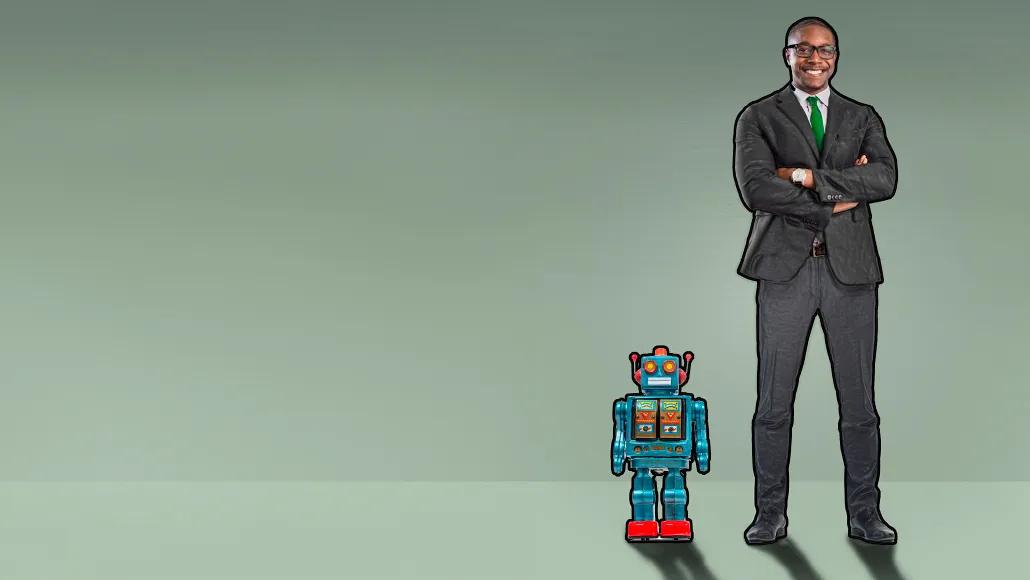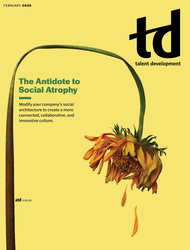TD Magazine Article
Choose People Over Technology
Emphasize human-oriented skills for talent development.
Sat Feb 01 2025

In its Workplace Skills Survey, Deloitte found that most workers want a better balance between technology and human skills, with 94 percent of 1,000 employees saying they're worried future generations of workers won't have adequate human skills. Those include adaptability, leadership, and communications, which 87 percent of respondents view as integral to career advancement. Just half of survey participants think their companies value human skills more than technical skills such as artificial intelligence integration and data analysis.
"Organizations that overemphasize technical training at the expense of enduring human capabilities—such as divergent thinking, emotional agility, and resilience—could end up impeding innovation and leaving employees ill-equipped to lead teams, adapt to market opportunities, and fully harness the potential of technology," says Deloitte US Chief Learning Officer Anthony Stephan in a press release. "Technical and human skills are symbiotic, which is why leaders should take a ‘yes and' approach—for the investments they make in tech skills, developing an equally exciting and critical human skill experience."
Ninety-five percent of workers consider human skills to be "timeless" and always necessary for success. Respondents want employers to prioritize teamwork and collaboration, communication, and leadership skills. In contrast to the ubiquity of human skills, 70 percent of individuals said they've worked for companies that ask them to learn a technology-based skill set only for that technology to fall out of use, rendering the training useless.
The frustration continues for workers, as only one-third said their employers offer limited or no human skills training. One out of 10 stated that learning only occurs when they ask for it—or not at all. Respondents had plenty of suggestions to increase human skills training, such as mentorship programs, on-the-job observation and shadowing opportunities, and quality time interacting with colleagues in both work and personal life.
"In an environment often marked by disruptions, leaders at all levels should be more intentional than ever about teaching and learning from each other—across generations, channels, and locations—in the flow of everyday work," Stephan explains.

